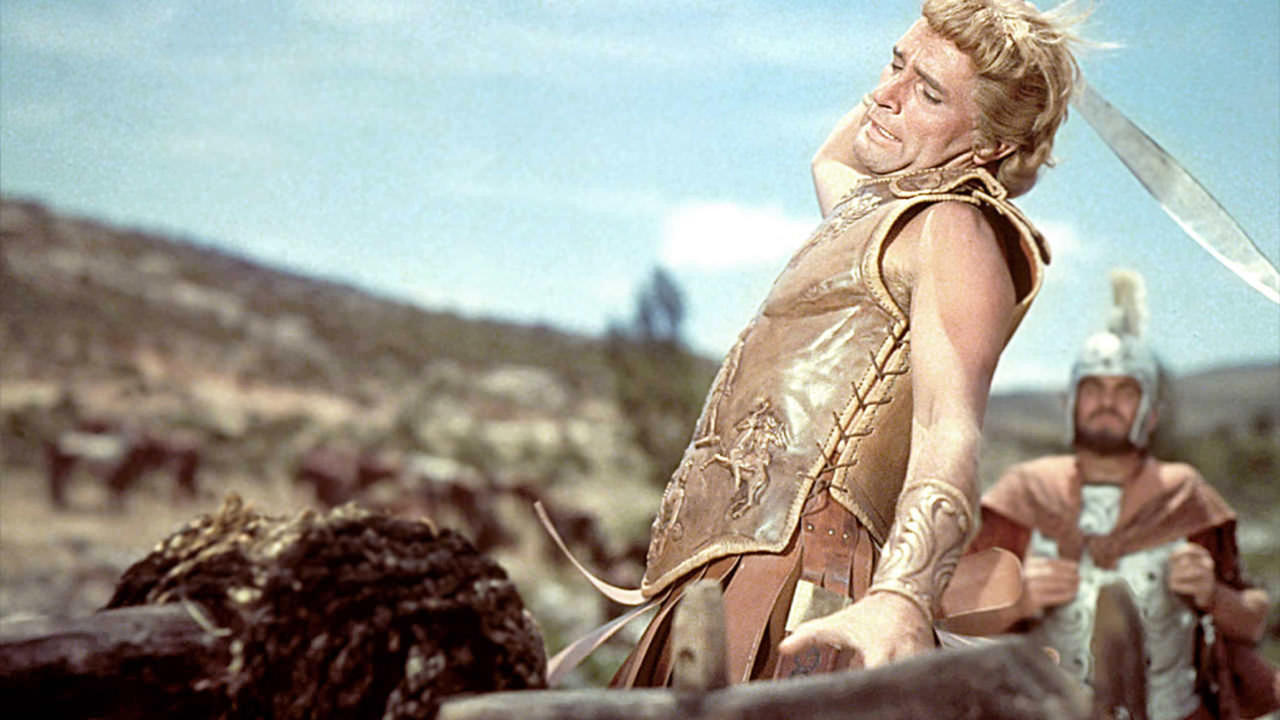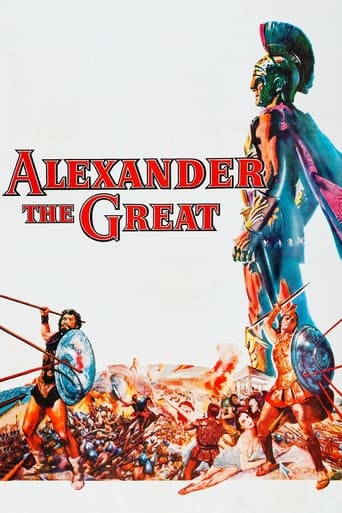

I really don't care about the historical inaccuracies in this film, but if you're going to be inaccurate, at least make the result involving. I cannot recall another movie with this much superb acting talent, and with the actors involved actually given lots of lines to speak, that came out so uninspiring and flatfooted. Since the actors pretty much do their jobs well, then it has to be laid down to the screenplay and the direction that this intended intelligent man's spectacle comes off so badly. I have never considered Richard Burton a great actor - not ever - but he had an absolutely wonderful voice that he used in place of great acting most of the time, and when he did truly get into a character, it was almost always one in which he could not use that voice all that much to make overwhelmingly resonant pronouncements to the world. In other words, he was at his best as downtrodden characters like the ones he played in THE SPY WHO CAME IN FROM THE COLD and WHO'S AFRAID OF VIRGINIA WOLFF? When given 'big' dialog, he tended to coast on his voice - even in something as intimate as HAMLET. So, we get a certain level of professionalism out of him in much of the rest, and it is so here - maybe a little less so at that. I don't find him, as some others have, looking too old for the role. To me, he looks like someone in his 20s who has a voice in its 40s, but otherwise he's not terrible. What he is not, and rarely was, is truly charismatic. Fredric March as his father here pretty much offers what Burton lacks, but for two big problems - 1) he dies off in the middle of the film, and 2) as the King of Macedonia with a totally American accent, he sounds completely out of place given that every other speaking role in the film is done by British actors with good old-fashioned British Shakespearean deliveries; where did this guy come from? Ah, but the screenplay is written for such actors and they do well by it (especially Peter Cushing, Barry Jones, Michael Hordern and Niall MacGinnis). The problem is that it is not a very cinematic screenplay they are acting, but one that leaves them talking at each other incessantly in what really seems like a Shakespeare stage play transferred to the movies; indeed, if you take the large scale battle scenes out, what you have is a perfect vehicle for a Shakespeare play, and it really is amazing that the Bard never thought to write one on Alexander the Great. Unfortunately, the dialog, while often highly literate, is NOT by Shakespeare, but by Rossen. Despite what appears to be Rossen's serious intention to give us an Ancient Family Drama Writ Large, it doesn't work out that way, and I found it impossible to care very much for anybody in the film. As for the remainder of the movie (like when they all shut up and just fight), the battle scenes are incredibly klutzy and unreal - guys more or less standing around kind of hitting at each other while two guys in front of the camera try harder - that kind of thing. This has nothing to do with special effects, as we got great battle scenes all the way back to the silent film era without the benefit of computer-generated trickery. If any single word describes this film, it is "leaden". But, hey, you can't find a conglomeration of actors like these in any film anymore, so on that basis alone, I'll give it a 6 (if they replaced them with dubbed-in Spaghetti Western types, it would rate a 2!).
... View MoreThroughout his rather short life (33 years quite short for its time), Alexander the Great conquered much of the Middle East and a TV programme titled "In the Footsteps of Alexander the Great" by Michael Wood would provide a fascinating but complex insight and on whether one would consider him to be a hero or villain and even two films have been made and it may even explain why these have been so-sos.On the 1955 film starring Richard Burton, this one was a bit dreary and the likeliest reason for its failure was due to the inability of screenwriter, producer and director Robert Rossen to hold the story together and it sometimes became known as "Alexander the Bore" and Burton may have been miscast as the Greek warrior but the plus side of Burton playing Alexander was his remarkable voice and the fact is that it looked to be that Burton played Alexander the Great in a similar fashion as he did when starring as Marcellus in The Robe. The Oliver Stone version that was premiered in 2004 looked to be more promising but it's not necessarily better and had also been heavily criticised for a number of reasons. Therefore, the complicated history of a warrior whom conquered the middle east 2.300 years ago may explain the reason for the failure of those two films.
... View MoreThough not historically accurate you could say this film is based on Alexandre the Great's impressive figure. The point is that it has some important flaws the demerit the product.First of all Richard Burton was not the actor to play Alexandre though not for his undoubted acting ability but because he was too old. In fact, he was almost the same age the Macedonian hero was when he died, and it shows clearly (even more when the picture takes his life when he was just an adolescent). Secondly, the film is too slow with lots of talk and little action, but Alexander was mainly a man of action. And finally, the not abundant action sequences lack spectacle and strength, even for the middle 50's. So it appears to me that director Robert Rossen either missed the correct focus to tell this story or got too tight to an erroneously focused script.However the film might be entertaining for those who like epic films and/or are interested in the historical figure (like me) and has some good moments, good color photography, a fine and adequate musical score and a strong supporting cast. Frederic March does a good job as Philipus II "the Barbarian", Alexander's father, who created the invincible Macedonian "falange" that was so very well used by his son at war. Danielle Darrieux plays Alexander's ambitious and confronting mother and there are fine performances too by Peter Cushing, Stanley Baker, Helmut Dantine and the always reliable Harry Andrews as Persian king Darius.Just for a look every once in a while, but no too often.
... View MoreThis film was recently shown on British TV. I remember seeing the original in St. John's Newfoundland during my national service in the US Army. It was impressive then but, alas, not now! It was just one of many Hollywood attempts to get people away from the TV set and back into the movie theaters. Burton was just starting his career and he seemed awed and somewhat subdued in this film.Unfortunately its main purpose today is as a source for laughter. Two early scenes, 2 handers, were played behind a mammoth statue with the statues rear end dominating the screen behind the actors! I guess Burton just did not yet have the clout to say "No way, Jose'"! Also spot some of the horrendous continuity errors and look out for the "dead" extra who moves his foot away from an advancing horse. Poor Harry Andrews (an excellent actor) as the dead Darius just carries on breathing as an intolerably long shot lingers on him. I don't blame him!
... View More